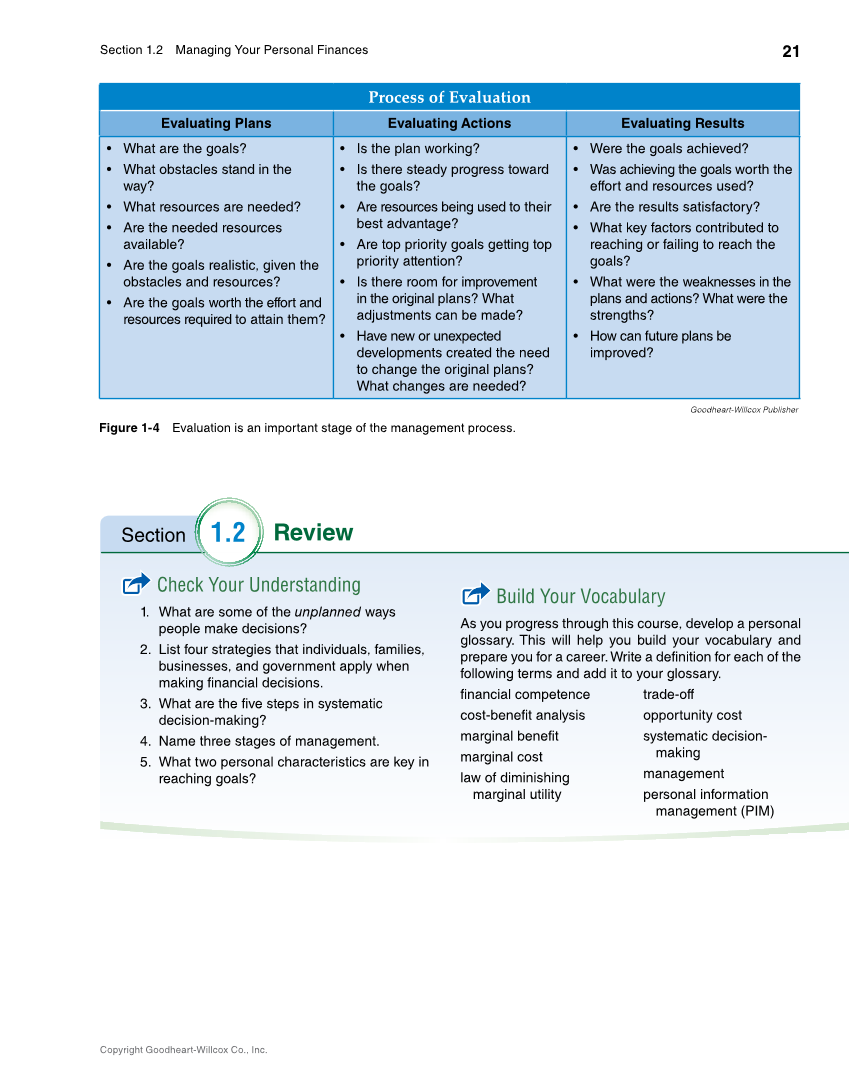Copyright Goodheart-Willcox Co., Inc. Section 1.2 Managing Your Personal Finances 21 Goodheart-Willcox Publisher Figure 1-4 Evaluation is an important stage of the management process. Process of Evaluation Evaluating Plans Evaluating Actions Evaluating Results • What are the goals? • What obstacles stand in the way? • What resources are needed? • Are the needed resources available? • Are the goals realistic, given the obstacles and resources? • Are the goals worth the effort and resources required to attain them? • Is the plan working? • Is there steady progress toward the goals? • Are resources being used to their best advantage? • Are top priority goals getting top priority attention? • Is there room for improvement in the original plans? What adjustments can be made? • Have new or unexpected developments created the need to change the original plans? What changes are needed? • Were the goals achieved? • Was achieving the goals worth the effort and resources used? • Are the results satisfactory? • What key factors contributed to reaching or failing to reach the goals? • What were the weaknesses in the plans and actions? What were the strengths? • How can future plans be improved? Check Your Understanding 1. What are some of the unplanned ways people make decisions? 2. List four strategies that individuals, families, businesses, and government apply when making financial decisions. 3. What are the five steps in systematic decision-making? 4. Name three stages of management. 5. What two personal characteristics are key in reaching goals? Build Your Vocabulary As you progress through this course, develop a personal glossary. This will help you build your vocabulary and prepare you for a career. Write a definition for each of the following terms and add it to your glossary. financial competence cost-benefit analysis marginal benefit marginal cost law of diminishing marginal utility trade-off opportunity cost systematic decision- making management personal information management (PIM) Review Section 1.2
